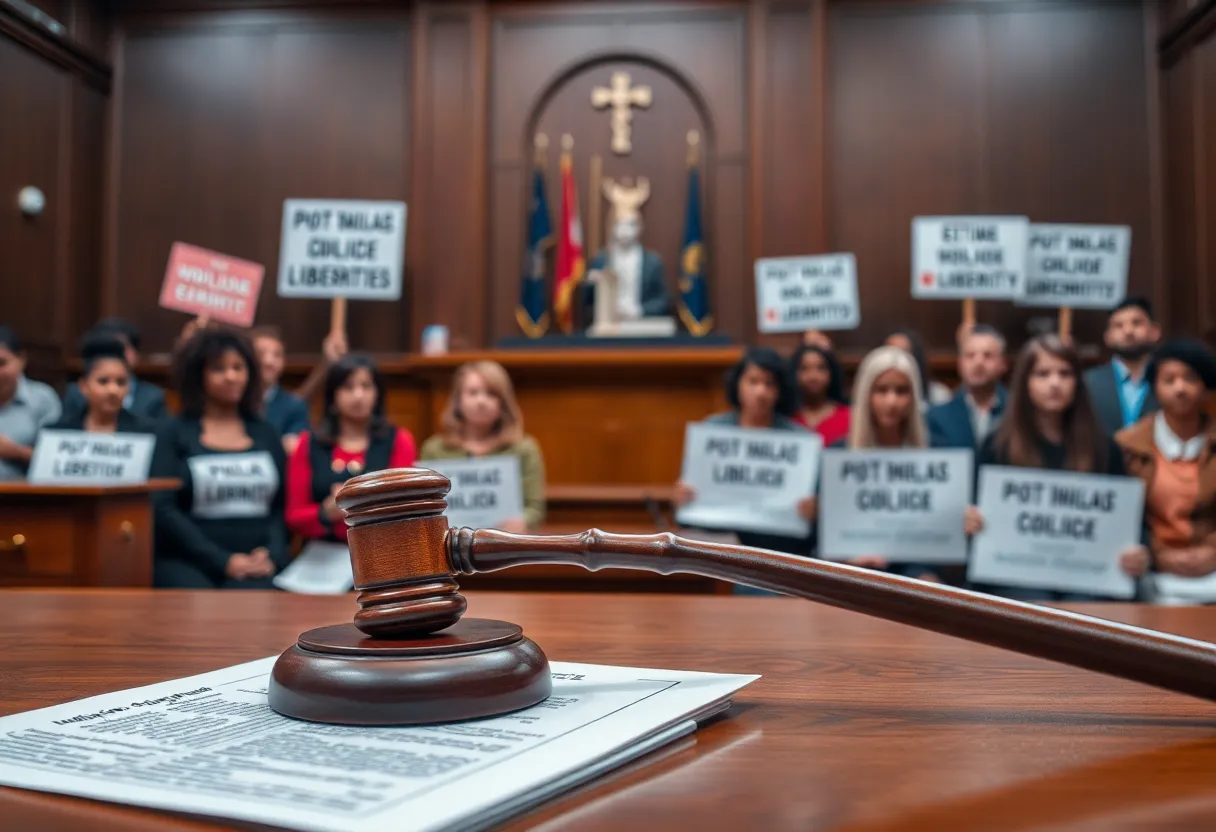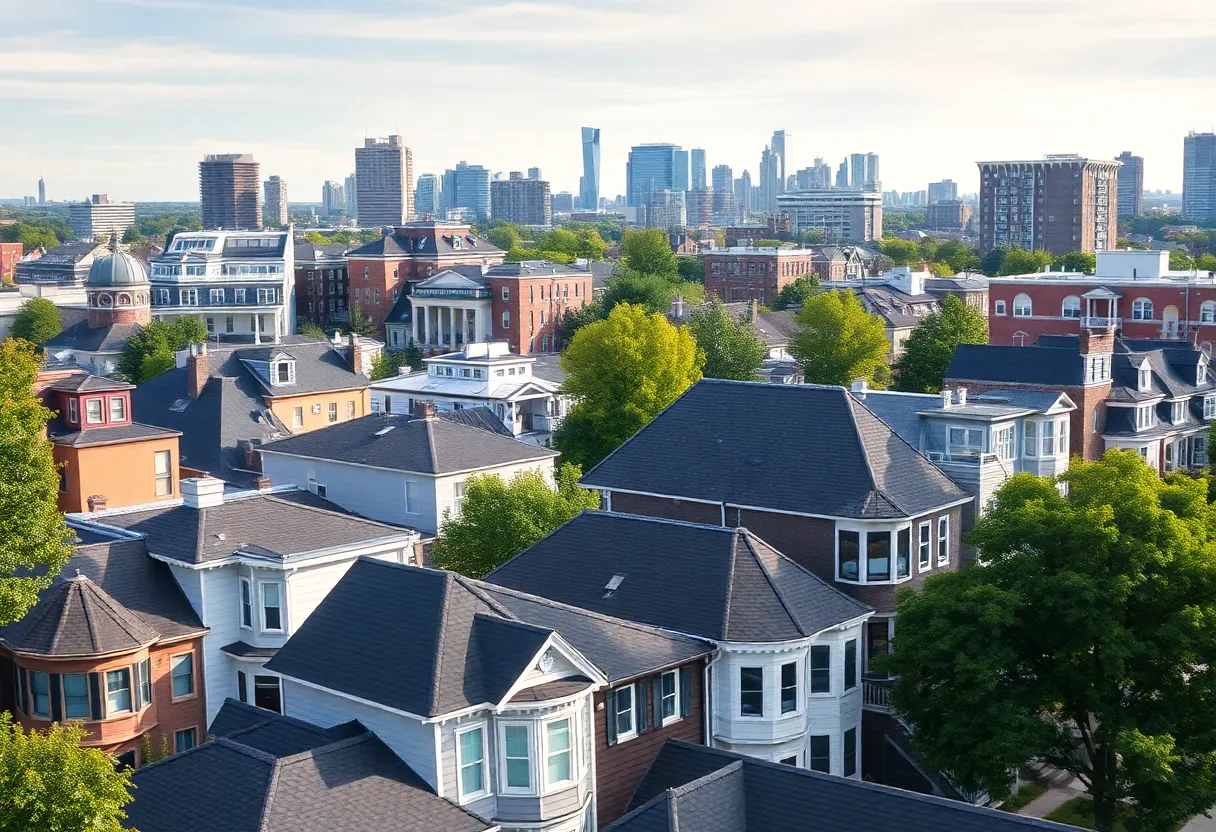News Summary
A federal judge ruled that the Trump administration cannot continue to detain Mahmoud Khalil, a pro-Palestinian activist, citing constitutional grounds. Khalil, who has been held for over three months without charges, drew significant attention for his involvement in pro-Palestinian demonstrations at Columbia University. The judge criticized the government’s justification for his detention and raised questions about its constitutionality. Supporters argue this case exemplifies broader issues surrounding free speech and activism in the U.S., as Khalil’s legal team fights for his release amid ongoing legal battles.
Federal Judge Rules Against Khalil’s Detention
In a significant decision, a federal judge has determined that the Trump administration cannot continue to detain Mahmoud Khalil, a pro-Palestinian activist and recent Columbia University graduate, on constitutional grounds. This ruling comes after Khalil has spent over three months held in a federal detention center in Louisiana, having been arrested back in March.
Background on the Case
For those who might not be aware, Khalil is a legal permanent resident of the U.S. He hasn’t been charged with any crimes but was actively involved in pro-Palestinian demonstrations organized at Columbia University. His arrest drew attention not just for its timing but also for the legal justifications cited by Secretary of State Marco Rubio, suggesting that Khalil’s actions threatened U.S. foreign policy and could promote antisemitism.
Judge Questions Government’s Justification
Judge Michael E. Farbiarz found the reasons presented by the government likely to be unconstitutional. He raised concerns that they didn’t adequately explain why Khalil was still being detained. Initially, after the ruling was announced, the Justice Department shifted its strategy. They brought forth new allegations related to Khalil’s immigration status, claiming he had not been entirely truthful on his residency application.
Legal Maneuvers and Ongoing Detention
The new arguments from the government suggested that Khalil’s supposed inaccuracies warranted his detention. However, Judge Farbiarz pointed out that even these claims did not provide sufficient grounds for keeping Khalil behind bars. His legal representatives have vehemently denied the government’s accusations that Khalil supported terrorism, labeling such claims as “grotesque and false.”
This recent ruling led to a preliminary injunction against Khalil’s detention, allowing for potential government appeal. Yet, during the ongoing legal battles, Khalil’s lawyers have emphasized how the detention has caused him irreparable harm, both to his career and to his personal reputation.
Government’s Immigration Arguments
Earlier, the Department of Homeland Security contended that they could detain Khalil based on these accusations regarding his residency application. Judge Farbiarz even encouraged Khalil’s legal team to pursue a bail release in immigration court, noting that he had yet to establish the illegality of his detention.
A Political Climate of Suppression?
Khalil’s case has generated significant debate, with his team and supporters, including organizations advocating for civil liberties, criticizing the government’s actions. They argue that this is part of a broader effort to quash free speech and student activism in response to protests that have emerged regarding Israel’s actions in Gaza. Khalil has faced allegations of antisemitism due to his support for Palestinian rights, despite his insistence that he does not support violence in any form.
Public Support and Awareness
To raise awareness about Khalil’s situation, a touching video has been released featuring various celebrities reading a heartfelt letter he wrote to his newborn son. This initiative serves to highlight not only Khalil’s circumstances but also the human aspect of his fight for freedom, especially as Father’s Day approaches.
What’s Next?
Khalil’s legal team is steadfast in their commitment to fighting for his immediate release, asserting that the strategies employed by the government are both cruel and unjust. As this story continues to unfold, it’s clear that the implications extend beyond Khalil himself, touching on fundamental issues of free speech and the rights of activists in America.
As developments in Khalil’s case progress, many are left wondering what this means for the future of student activism and the rights of individuals to express their political beliefs without facing legal repercussions.
Deeper Dive: News & Info About This Topic
- NBC News
- Wikipedia: Mahmoud Khalil
- Al Jazeera
- Google Search: Mahmoud Khalil
- CNN
- Encyclopedia Britannica: Mahmoud Khalil
- AP News
- Google News: Mahmoud Khalil

Author: STAFF HERE PHILADELPHIA WRITER
The PHILADELPHIA STAFF WRITER represents the experienced team at HEREPhiladelphia.com, your go-to source for actionable local news and information in Philadelphia, Philadelphia County, and beyond. Specializing in "news you can use," we cover essential topics like product reviews for personal and business needs, local business directories, politics, real estate trends, neighborhood insights, and state news affecting the area—with deep expertise drawn from years of dedicated reporting and strong community input, including local press releases and business updates. We deliver top reporting on high-value events such as Mummers Parade, Philadelphia Flower Show, and Thanksgiving Day Parade. Our coverage extends to key organizations like the Greater Philadelphia Chamber of Commerce and United Way of Greater Philadelphia, plus leading businesses in telecommunications, food services, and healthcare that power the local economy such as Comcast, Aramark, and Children's Hospital of Philadelphia. As part of the broader HERE network, we provide comprehensive, credible insights into Pennsylvania's dynamic landscape.





